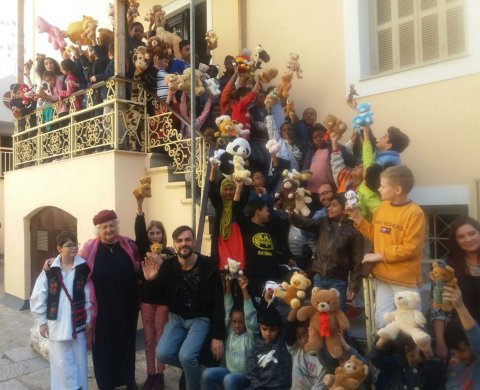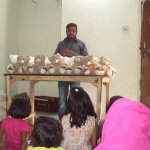Inspiring Hope - Teddy Bears Delivered to Syrian Refugee Children in Greece
While physical needs are primary to providing aid to the Syrian Refugees, emotional well-being, hope and even inspiration are important for long-term recovery. Children are resilient, yet these children have suffered tremendous losses of home, family, schools, stability. Bear Hugs brings messages of caring by teddy bears delivered in person by caring students. Everyone benefits from the cultural and educational exchange that also inspires the building of a better world of peace and compassion.
The Syrian refugee crisis includes a large population of children who simply do not understand why they had to leave and where they are going. It's a life of uncertainty and fear. They left behind friends, family, homes and schools. They've experienced great loss of stability and safety. The parents share in that fear. In Greece alone, there are over 35,000 refugees living in uncertainty. Although physical needs are sometimes met, who takes care of the emotional impact on the children?
It's children who make the future of our world. Giving a child a moment of joy, a stuffed friend to comfort him/her during frightening times, delivered by a person from far away, creates a memory that builds hope for more. That remembered hope can build peace. "Bear Hugs" grew from teddy bears being delivered to the children of 9/11 victims. From then, bears have been delivered to Haiti, SE Asia, Ghana and Rwanda, Pakistan orphans and now Greek refugee children. Hope matters more than politics.
Over 700 children will get the gift of joy from a teddy bear's hug. A memory will be built to be shared by both children and parents. California foster youth who understand the loss of home, stability and family are providing the messages of solidarity. The student team traveling to deliver the teddy bears, school and hygiene supplies will also feel the impact. The refugees, foster youth, student team and all who contribute will carry it forward. Who can guess how many will ultimately benefit?
























